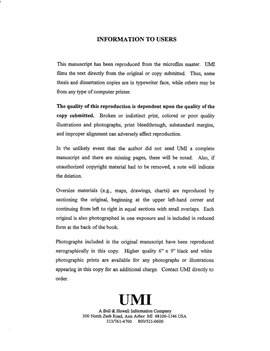| dc.contributor.advisor | Wieder, D. L., | en_US |
| dc.contributor.author | Fairley, Michael Shawn. | en_US |
| dc.date.accessioned | 2013-08-16T12:30:30Z | |
| dc.date.available | 2013-08-16T12:30:30Z | |
| dc.date.issued | 1999 | en_US |
| dc.identifier.uri | https://hdl.handle.net/11244/5801 | |
| dc.description.abstract | This study examined the language use in a multilingual English as a second language school located in the Midwest. The primary objective of this study was to uncover and display the ways in which members of this setting manage the various activities involved in the teaching and learning of English in light of extreme linguistic barriers. Those members included the native English speaking teachers and staff, as well as the nonnative speaking students representing a variety of cultural and linguistic backgrounds. Both Hymes' ethnography of communication and Garfinkel's ethnomethodology informed and guided the study. Namely, this investigation included an inspection of the language school as a special kind of speech community, and the use of conversation analysis to describe the details of native/nonnative, and nonnative/nonnative speaker (inter-lingual) interaction. Based on those efforts, I argue that much of the social activity of the members can be understood in terms of the pressing orientation to display and assess interactive-competence-in-spite-of-linguistic-deficiency. The nature of that activity as an oriented to way of speaking in explored, including how it is similar to and differs from other conceptualizations of communicative and intercultural communication competence, its relationship to the concepts of interlanguage and the negotiation of meaning, its cooperative turn-by-turn achievement, and its consequences for the members. Additionally, a description of the members' various speaking patterns reveals a paradoxical aspect to inter-lingual interaction at the language school. Specifically, despite the espoused goodness of the official and unofficial rule to "speak English whenever possible, " these interactions are largely prohibited. Implications of this study, both in terms of its methods and findings, for theories of language use and their concomitant methodologies are discussed. | en_US |
| dc.format.extent | vii, 263 leaves ; | en_US |
| dc.subject | English language Study and teaching Middle West. | en_US |
| dc.subject | Education, Sociology of. | en_US |
| dc.subject | Anthropology, Cultural. | en_US |
| dc.subject | English language Study and teaching Foreign speakers. | en_US |
| dc.subject | Speech Communication. | en_US |
| dc.title | Interactive competence in a multilingual English language school. | en_US |
| dc.type | Thesis | en_US |
| dc.thesis.degree | Ph.D. | en_US |
| dc.thesis.degreeDiscipline | Department of Communication | en_US |
| dc.note | Adviser: D. L. Wieder. | en_US |
| dc.note | Source: Dissertation Abstracts International, Volume: 60-05, Section: A, page: 1395. | en_US |
| ou.identifier | (UMI)AAI9929554 | en_US |
| ou.group | College of Arts and Sciences::Department of Communication | |
